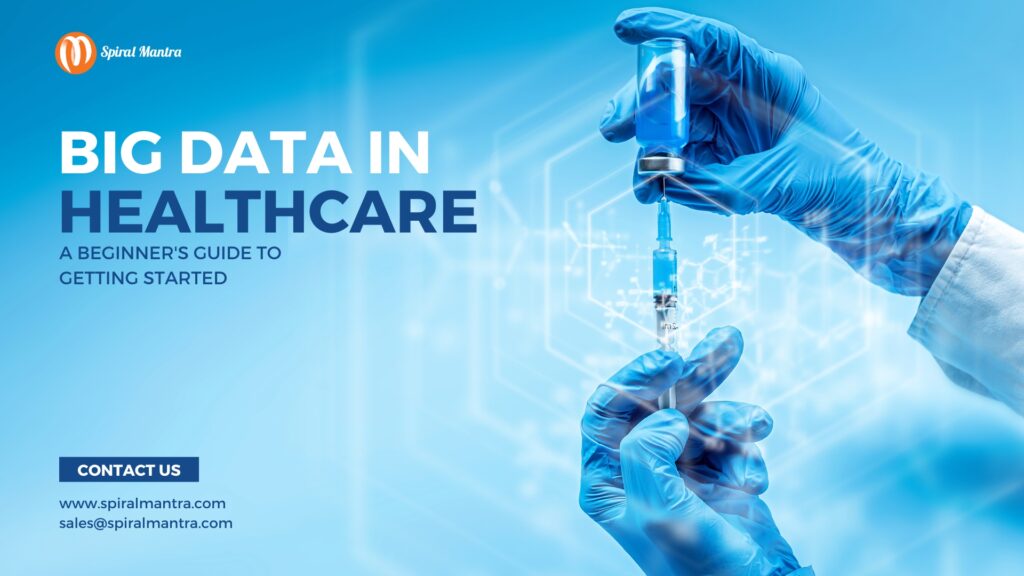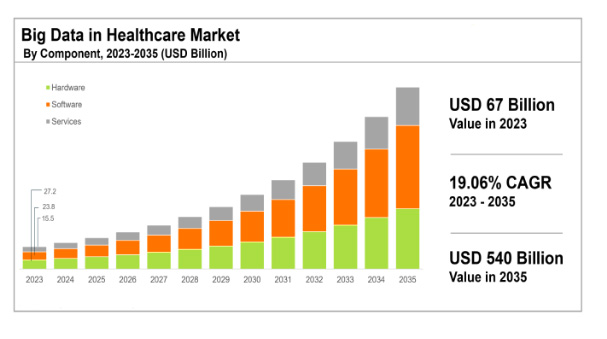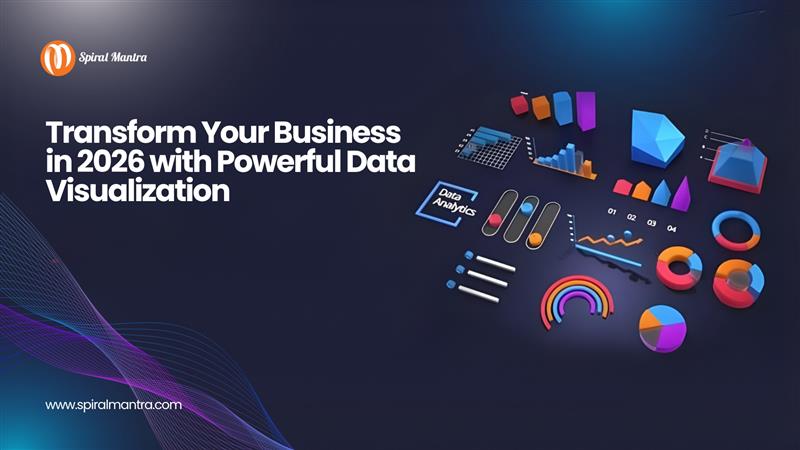
Big Data in Healthcare: Understanding Its Importance and Applications
Big Data in Healthcare is a buzzword trending on Google recently, but how exactly do you know its importance and significance in the growing industry? This could be a considerable question. In the healthcare industry, every patient and their medical trial and diagnosis are linked to a data point analyzing what treatment plan should be implemented next. Typically, a massive range of intelligence is known to be called “big data,” and staying ahead in technology by integrating it with healthcare is where the biggest health advances lie. But if you are curious to know how big data trends in healthcare get used with their significant impact, then this guide is rightly suitable for you. Keep reading!What is big data analytics in healthcare?
The term big data denotes larger sets of facts consisting of both amorphous and structured information, useful for identifying key insights and trends. In short, it contains a high volume of information, generating quick results by adapting different sets of intelligence types, including graphs, videos, texts, images, and more. In the healthcare industry, big data output is generated to achieve identified outcomes, which include the parameters of improving patient outcomes, making vigorous decision-making, decreasing the overall costs of health care, and more. Stating the facts and sources includes electronic health records, personal health records, electronic medical reports, and more. The global market indicates the sudden rise of big data in healthcare, as the market size has seized the estimated growth of USD 540 billion from USD 67 billion by the year 2035, showcasing a growth of 19.06% throughout the estimated period of 2023–2035.
Best Big Data in Healthcare Example
Undoubtedly, electronic health records (containing the medical history of a patient) are the most common source of data. It helps identify major criteria of information like demographic details, immunizations, medical history, patient test results, medications, and progress on treatment. By pairing this information with advanced predictive analysis tools and techniques like machine learning, researchers can forecast figures regarding post-surgical complications. Other than this, professionals working in medicine use big data processes to simplify the patient experience by identifying and diagnosing medical conditions. Surely, the impact of large-scale intelligence in the healthcare industry is enormous, as it indicates the sudden shift in big data trends in healthcare. As per the recently conducted research by Allied Market Research, the performing market of North America in predictive analytics in healthcare is projected to reach $34.16 billion by the end of 2025.How is predictive analytics done in healthcare?
The entire process consists of multiple tasks that need to be executed by adapting the right statistical techniques and models. To begin with, patient data will be collected by adapting techniques like electronic health records (consisting of patient medical history, locations, and final lab results), online surveys, and more. Once the details are available, the procedure of data integration and cleaning will be completed, which often involves resolving discrepancies and ensuring the alignment of data formats. Next up is the course of data exploration and preparation, which involves identifying the relationships between patterns and variables. Having a deep understanding of relevant variables helps to forecast the model’s predictions. In the next phase of model building, choosing the right set of models is crucial to achieving possible forecast predictions. Afterward, testing the model’s performance and deploying it is vital to attaining accurate results before the final deployment process. By taking advantage of historical and real-time data, organizations would be on the safer side to make conversant decisions to enhance operational efficiency.The Major Role of Data Analytics in Medical Management
In a pool of information and bits, the adaptation of data analytics makes better sense for medical professionals. Patient images, clinical trials, medical equipment, and nursing notes—authorities require vigorous evidence to finalize their decision-making process. To get the best outcome, the role of data analytics in medical management allows one to get a hands-on, varied number of sources and insights with improved efficiency. Over the years, healthcare ammunition has expanded and has become more accessible in many ways, like:- More than 95% of hospitals across the United States have adopted electronic health record systems, best known as EHRs, to improve the quality of treatment.
- Additionally, 60% of the hospitals in the US have introduced IoT devices for efficiency.
Outshining Benefits of Big Data Trends in Healthcare
The complexity of data is transforming healthcare processes by including the latest trends in ground-breaking reality. Whether adding artificial intelligence, fraud detection, adoption of blockchain, or even integration of IoMT devices, big data trends in healthcare have come a long way and are still expanding their roots. Considering its benefits in the healthcare and medicine lines, there is ample assistance that one can take from these new trends.- Improved Patient Care: Complex patient details come with an opportunity to start using the trends that simplify the complications but also help to produce improved results with astonishing patient care.
- Best-in-Class Treatment Strategies: Gone are the days when you put every detail on paper. By adapting to new technologies and smarter trends, the overall game of analyzing treatment plans has gained charm.
- Enhanced Research Volume: Big data analytics has opened a big door of opportunity for medical researchers to simplify and get access to a large volume of information and figures to improve patient care.
- Minimized Healthcare Costs: Health care can burn your pocket; however, adding the methodologies of big data can effectively cut down on the chase of pricing by providing the appropriate treatment plans, all under your cost-effective measures.
How does big data advance patient outcomes?
For ages, patient details have been vital to drawing conclusions and outcomes, but no longer with the traditional methods, as they turn out to be time-consuming and expensive on a larger scale. Today, with the advancement of technology, hospitals are seeking more advanced ways to evaluate their complex signs of intelligence, and for that, they are majorly adopting augmented analysis methods to collect details electronically. With constant advancement, generating medical solutions is easy and fast, while it also helps to improve patient outcomes in ample ways:- Empower patients to go through their health histories by rooting for easily available medical reports.
- It helps to make an informed decision with an easy-to-access health status, allowing for faster treatment methods.
- Saves patients time by streamlining the administrative process.
- It helps administrators allocate funds and resources in the right manner, helping the higher authorities make informed decisions.
- Harnessing hospitals with ideal data-driven findings to summarize, predict, and even resolve medical issues.

